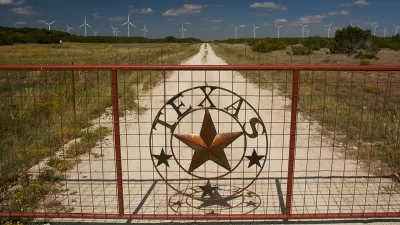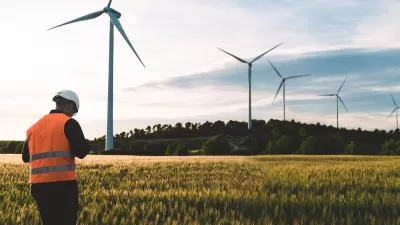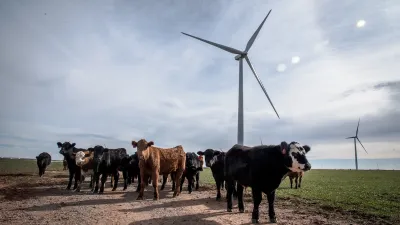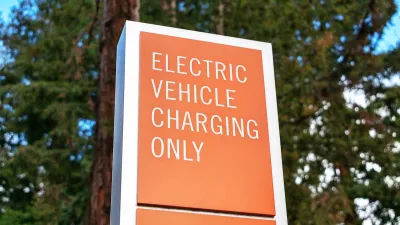As renewable energy production grows in Republican-leaning states, lawmakers are becoming less resistant to supporting clean energy policies.

“I don’t want to be naïve or to echo the predictions of previous climate Pollyannas to say that Republican cooperation is right around the corner,” writes David Wallace-Wells in The New York Times about federal efforts to promote renewable and clean energy. “But the partisan landscape may be finally changing, indeed somewhat significantly.”
For proof, Wallace-Wells points to the relatively painless adoption of the Inflation Reduction Act, “The biggest piece of climate legislation in American history,” which met with much less backlash from Republican lawmakers than other progressive legislation.
“One big reason for that is the design of the bill itself, which was both smaller in size and more targeted in scope than many of the original Green New Deal proposals. In fact, it was designed in part to blunt backlash” by largely offering incentives rather than penalties and pumping billions of dollars into local economies in ‘red’ areas, where renewable energy production is booming. “All told, according to an analysis by the Rocky Mountain Institute, the Inflation Reduction Act could deliver, on average, nearly twice as much subsidy per capita to Republican states as Democratic ones.”
Ultimately, Wallace-Wells believes the contribution to local economies will likely win over ideology. “When the government is pouring money into your backyard, it’s hard to play the NIMBY for long.”
FULL STORY: Clean Energy Is Suddenly Less Polarizing Than You Think

Study: Maui’s Plan to Convert Vacation Rentals to Long-Term Housing Could Cause Nearly $1 Billion Economic Loss
The plan would reduce visitor accommodation by 25,% resulting in 1,900 jobs lost.

North Texas Transit Leaders Tout Benefits of TOD for Growing Region
At a summit focused on transit-oriented development, policymakers discussed how North Texas’ expanded light rail system can serve as a tool for economic growth.

Using Old Oil and Gas Wells for Green Energy Storage
Penn State researchers have found that repurposing abandoned oil and gas wells for geothermal-assisted compressed-air energy storage can boost efficiency, reduce environmental risks, and support clean energy and job transitions.

Private Donations Propel Early Restoration of Palisades Playground
Los Angeles has secured over $1.3 million in private funding to restore the Pacific Palisades playground months ahead of schedule, creating a modern, accessible space that supports community healing after recent wildfires.

From Blight to Benefit: Early Results From California’s Equitable Cleanup Program
The Equitable Community Revitalization Grant (ECRG) program is reshaping brownfield redevelopment by prioritizing projects in low-income and environmental justice communities, emphasizing equity, transparency, and community benefits.

Planting Relief: Tackling Las Vegas Heat One Tree at a Time
Nevada Plants, a Las Vegas-based nonprofit, is combating the city’s extreme urban heat by giving away trees to residents in underserved neighborhoods, promoting shade, sustainability, and community health.
Urban Design for Planners 1: Software Tools
This six-course series explores essential urban design concepts using open source software and equips planners with the tools they need to participate fully in the urban design process.
Planning for Universal Design
Learn the tools for implementing Universal Design in planning regulations.
Ascent Environmental
Borough of Carlisle
Institute for Housing and Urban Development Studies (IHS)
City of Grandview
Harvard GSD Executive Education
Toledo-Lucas County Plan Commissions
Salt Lake City
NYU Wagner Graduate School of Public Service





























